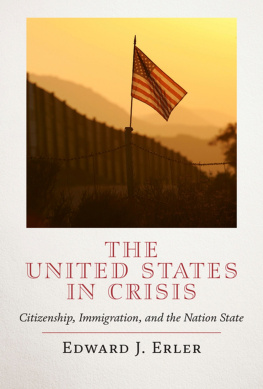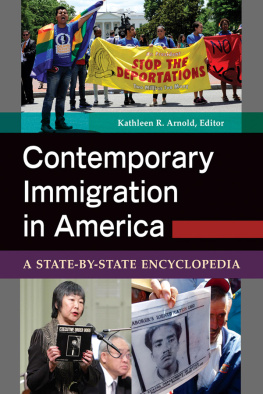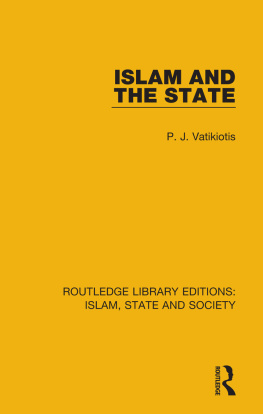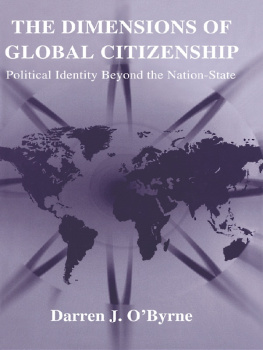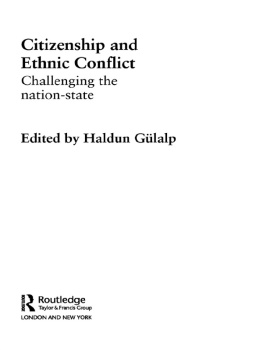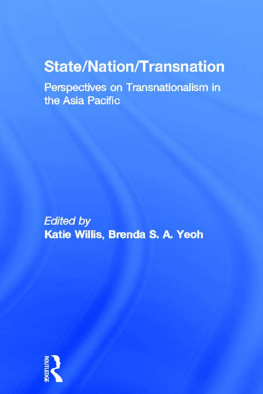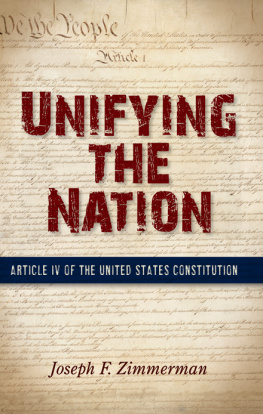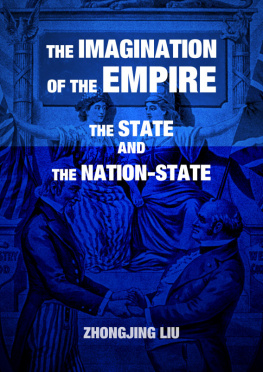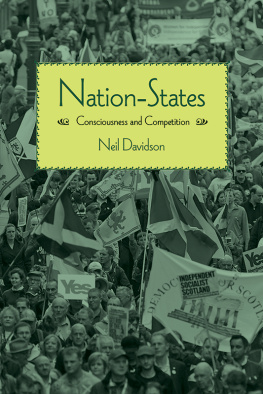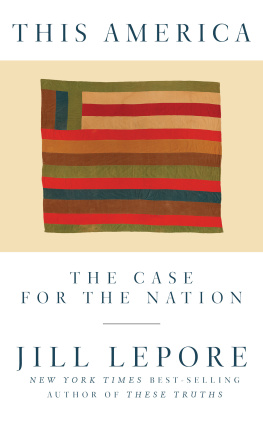2022 by Edward J. Erler
All rights reserved. No part of this publication may be reproduced, stored in a retrieval system, or transmitted, in any form or by any means, electronic, mechanical, photocopying, recording, or otherwise, without the prior written permission of Encounter Books, 900 Broadway, Suite 601, New York, New York, 10003.
First American edition published in 2022 by Encounter Books, an activity of Encounter for Culture and Education, Inc., a nonprofit, tax-exempt corporation.
Encounter Books website address: www.encounterbooks.com
Manufactured in the United States and printed on acid-free paper. The paper used in this publication meets the minimum requirements of ANSI/NISO Z39.48-1992 (R 1997) (Permanence of Paper).
FIRST EDITION
LIBRARY OF CONGRESS CATALOGING-IN-PUBLICATION DATA
Names: Erler, Edward J., author.
Title: The United States in Crisis: Citizenship, Immigration, and the Nation State / Edward J. Erler.
Description: First American edition. | New York: Encounter Books, 2022. | Includes bibliographical references and index. |
Identifiers: LCCN 2021045806 (print) | LCCN 2021045807 (ebook) | ISBN 9781641772358 (hardcover) | ISBN 9781641772365 (ebook)
Subjects: LCSH: CitizenshipUnited States. | United StatesEmigration and immigration. | Sovereignty. | State, The.
Classification: LCC JK1759 .E75 2022(print) | LCC JK1759 (ebook) |
DDC 323.60973dc23/eng/20211018
LC record available at https://lccn.loc.gov/2021045806
LC ebook record available at https://lccn.loc.gov/2021045807
1 2 3 4 5 6 7 8 9 20 22
|CHAPTER ONE| WHY SOVEREIGNTY MATTERS
ARISTOTLE, IN THE POLITICS, noted the tendency of democracies and republics to become oligarchies: the rule of the few for the benefit of the few. On occasion, he noted, one of the oligarchs appeals to the people for their support in overturning the oligarchic class and returning to the old regime.
In his 2016 presidential campaign, then-candidate Trump argued that, while the United States still adhered to republican constitutional forms, the ruling Washington establishment and its allies in finance, big tech and social media had become a thoroughgoing oligarchic combination of ruling elites.
Self-interest is not always the dominant motivating force in some men; sometimes an instinct for justice prevails, or sometimes a reputation for justice might be a primary self-interest. Donald Trump didnt know about Aristotle or Aristotles dictum that it is justice, above all, that preserves regimes but he did understand one thing: it takes an insider to understand oligarchy.
Trump announced that he was a wealthy insider who was outraged at the crimes committed by the oligarchy at the expense of the people most vividly, how it was profiting from cheap manufacturing China at the expense of the American middle and working classes. This, he believed, was unjust; he wanted to act on behalf of the people to restore the constitutional republic in which the people, rather than the oligarchy, held sovereign power.
In his campaign against the American oligarchy, he appealed to the closely tied ideas of citizenship, sovereignty, and borders. Bypassing the ruling class elites that dominate the media, the universities, professional political class, and government bureaucrats, Trumps campaign was a direct appeal to the people as the ultimate source of sovereign authority.
In 2016, Trump dominated the media because he was newsworthy. He received free coverage, much of it live, where he could speak directly to the people. He also had free access to millions of Americans on social networks like Twitter and Facebook, allowing him to bypass the corporate media. These networks also allowed Trumps supporters to organize and build alternate communications nodes used to combat media disinformation campaigns.
His stunning victory that November was a defeat for the oligarchy in Washington including the leadership of both the Democrat and Republican party machines. Both the interests and ideologies of both parties elites transcended party differences, so they had a large stake in defending their entrenched privileges and their worldviews. Unused to being displaced, this class didnt take defeat lightly. Amplified by their courtiers in corporate media, they formed a chorus that questioned legitimacy of Trumps election even before his Inauguration Day. Talk of his impeachment began almost immediately.
The elites, in and out of government, mobilized against him with resources that he could not match. Throughout his presidency and culminating in the 2020 campaign, the oligarchy would continue its relentless opposition with ever-greater boldness and recklessness. It was able to marshal a near monopoly of the mainstream media, education, entertainment, and business into what amounted to tens of thousands of partisan political operatives, all practicing fanatical message discipline. They spoke with a single voice: the nationalist Donald Trump was synonymous with evil. His domestic policies were white supremacy or fascism; his foreign policies were treason.
For many voters of both parties, the hysteria of these elite offensives against Trump revealed the extent to which American democracy had, indeed, transmogrified into an oligarchy, powered by the big tech companies on which modern life depends. That oligarchy was at odds with the nations traditional conceptions of sovereignty and citizenship. As the 2020 election loomed, the largest Silicon Valley corporations began to realize the massive power they had to shape or disfigure public opinion; it was, after on, on their social media networks that Trump had been able to communicate with his audience and bypass the corporate media.
Using algorithmic manipulation that amounted to censorship, these social networks could deprive Republicans of connecting with their fellow citizens or refuting the dozens of new hoaxes that emanated daily from Trump-hating, partisan journalists. If 2016 had the Steele Dossier and the Russian Collusion narrative both of which turned out to be hoaxes then a steady stream of misrepresentations and fabrications became standard fare in 2020. The big tech oligarchs dogged him unmercifully, censoring him at crucial moments that amounted to clear instances of election interference. All of this was in the service of destroying the ideas of citizenship, borders, and nationalism Trump represented and articulated, however imperfectly. He defended American exceptionalism because he understood the importance of sovereignty to national independence and individual liberty.
A SEPARATE AND EQUAL NATION
In becoming one people, according to the words of the Declaration of Independence, Americans also became a separate and equal nation, whose citizens shared equal rights and privileges under the rule of law. These were privileges that remained exclusive to citizenship and were integral to what it meant to be part of a people who shared the same political principles.
More than a century ago, the U.S. Supreme Court announced what was considered to be the settled sense of the matter:
[I]t is an accepted maxim of international sovereignty, and essential to self-preservation, to forbid the entrance of foreigners within its dominions, or to admit them only in such cases and upon such conditions as it may see fit to prescribe.

